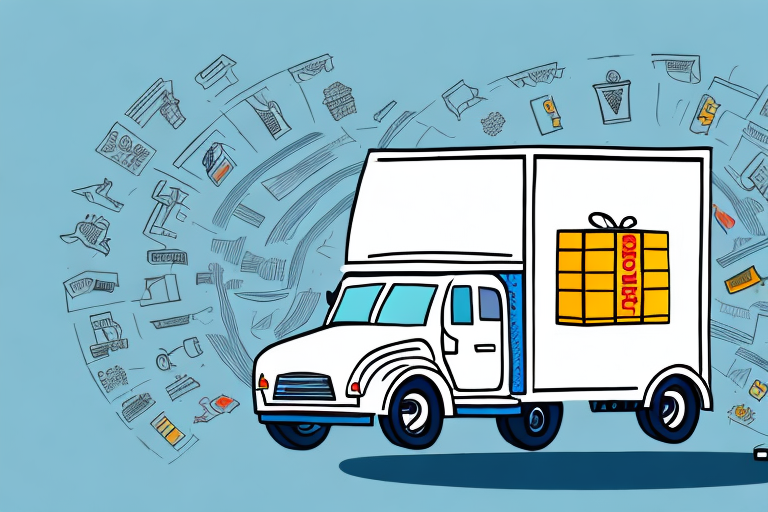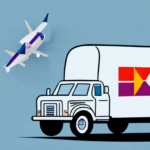Introduction to Courier Services and Their Pricing Structures
Courier services play a pivotal role in the global economy by enabling individuals and businesses to send and receive goods swiftly and reliably. Selecting the appropriate courier service can be daunting, especially for newcomers to the industry. A fundamental factor in this decision is understanding the pricing structure of courier services. This comprehensive guide delves into the essentials of courier service pricing, helping you make informed choices tailored to your shipping needs.
Types of Courier Services
Same-Day Courier Services
Same-day courier services ensure that packages are delivered on the same day of dispatch. These services are ideal for urgent shipments and are typically more expensive due to the expedited nature of delivery.
Next-Day Courier Services
Next-day services offer delivery by the following business day, balancing speed and cost. They are a popular choice for businesses requiring reliable, prompt deliveries without the premium cost of same-day services.
International Courier Services
International courier services facilitate deliveries across national borders. They are generally pricier than domestic services due to additional factors like customs duties, international tariffs, and longer transit times. According to the United Nations, globalization has increased the demand for efficient international courier services.
Freight Courier Services
Freight services handle oversized or heavy shipments that standard courier services cannot accommodate. While more costly, these services are essential for transporting large goods that require special handling and equipment.
Factors Influencing Courier Service Pricing
Delivery Speed
The speed of delivery is a primary determinant of cost. Faster delivery options, such as same-day or overnight services, incur higher fees compared to standard delivery timelines.
Distance and Coverage Area
The geographical distance between the origin and destination significantly impacts pricing. Deliveries covering longer distances or reaching remote areas typically cost more due to increased transit time and resource allocation.
Package Size and Weight
Larger and heavier packages require more resources for transportation and handling, thereby increasing the cost. Courier services often use dimensional weight pricing to account for both size and weight.
Additional Services and Insurance
Services like real-time tracking, insurance coverage, and special handling options add to the overall cost. Enhanced security measures for high-value items or sensitive documents also contribute to higher pricing.
Choosing the Right Courier Service
Assessing Your Shipping Needs
Start by identifying the nature of your shipments, including size, weight, destination, and required delivery speed. Understanding these factors will help you narrow down the courier services that best match your requirements.
Evaluating Service Reliability and Reputation
Research the reliability of potential courier services by reviewing customer testimonials and industry ratings. Services with a strong track record of on-time deliveries and minimal lost packages are preferable.
Comparing Pricing and Value
While cost is a significant consideration, it's essential to evaluate the overall value offered by the courier service. Factors like delivery accuracy, customer support, and additional features should be weighed against the pricing.
Considering Customer Service and Support
Responsive and accessible customer support can be crucial, especially when dealing with urgent or complex shipments. Ensure that the courier service offers reliable communication channels for addressing queries and resolving issues promptly.
Cost-Saving Strategies for Courier Services
Optimizing Delivery Schedules
Choosing slower delivery options when time is not critical can lead to substantial savings. Scheduled deliveries can also help in consolidating shipments, reducing the number of deliveries needed.
Consolidating Shipments
Grouping multiple packages into a single shipment can lower overall costs by reducing the number of individual deliveries and associated fees.
Utilizing Preferred Packaging
Using the courier's approved packaging can help avoid additional charges related to improper packaging. It also ensures the safety and integrity of the shipment during transit.
Leveraging Discounts and Promotions
Many courier services offer discounts for regular customers or bulk shipments. Inquiring about available promotions or negotiating long-term contracts can result in significant cost reductions.
Understanding and Avoiding Hidden Costs
Fuel Surcharges and Handling Fees
Courier services may impose additional fees for fuel costs or handling special packages. It's crucial to inquire about these potential charges upfront to avoid unexpected expenses.
Customs and Import Duties
International shipments can incur customs duties and import taxes, which vary by country and shipment value. Understanding these costs beforehand can prevent delays and financial surprises.
Insurance Fees
While insurance provides protection against loss or damage, some courier services include mandatory insurance fees. Assessing the necessity and extent of coverage can help manage these costs effectively.
Enhancing Shipment Security and Tracking
Insurance Options
Courier services offer various insurance levels, such as basic, declared, or full coverage. Selecting appropriate insurance based on the shipment's value ensures adequate protection against potential losses.
Real-Time Tracking and Monitoring
Advanced tracking systems provide real-time updates on shipment status, enhancing transparency and allowing for proactive management of deliveries. Integrating these systems can improve overall shipment efficiency.
Best Practices for Collaborating with Courier Services
Clear Communication
Providing detailed and accurate shipment information facilitates smooth processing and delivery. Clear communication with the courier service minimizes misunderstandings and errors.
Timely Payments and Positive Relationships
Maintaining prompt payments fosters a positive relationship with the courier service provider, potentially leading to better service terms and priority handling in future shipments.
Proper Packaging and Labeling
Using appropriate packaging materials and accurate labeling ensures the safety and correct routing of shipments. It also helps in reducing the likelihood of damage and delivery delays.
Regular Performance Reviews
Periodically evaluating the performance of your courier services against established benchmarks helps in identifying areas for improvement and ensuring continued alignment with your shipping needs.
Conclusion
Selecting the right courier service involves a balance between cost, speed, reliability, and the specific requirements of your shipments. By understanding the various types of courier services, the factors influencing pricing, and implementing cost-saving strategies, you can optimize your shipping operations effectively. Additionally, fostering a strong relationship with your courier provider and adhering to best practices ensures seamless and efficient delivery processes tailored to your business or personal needs.






















